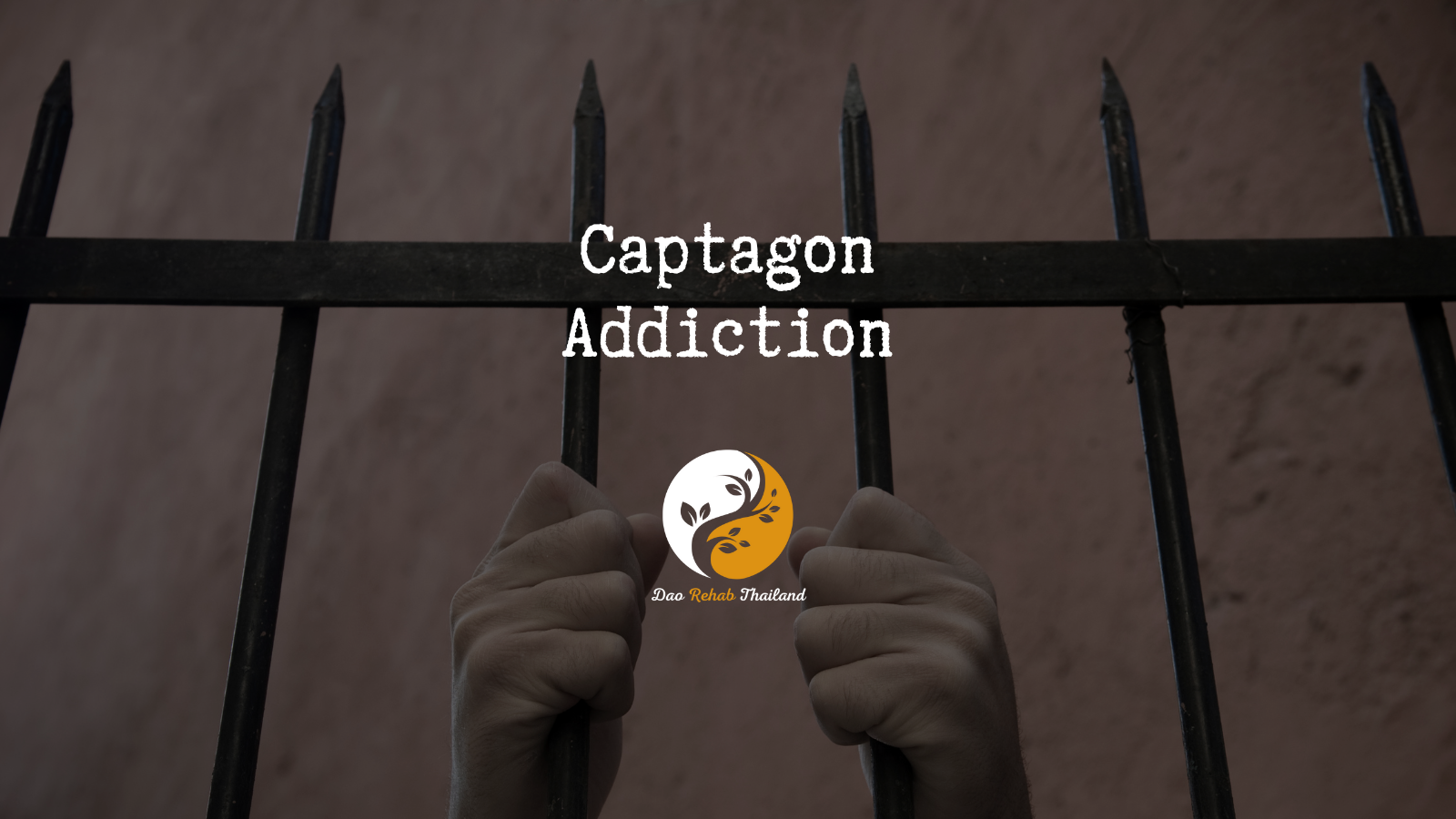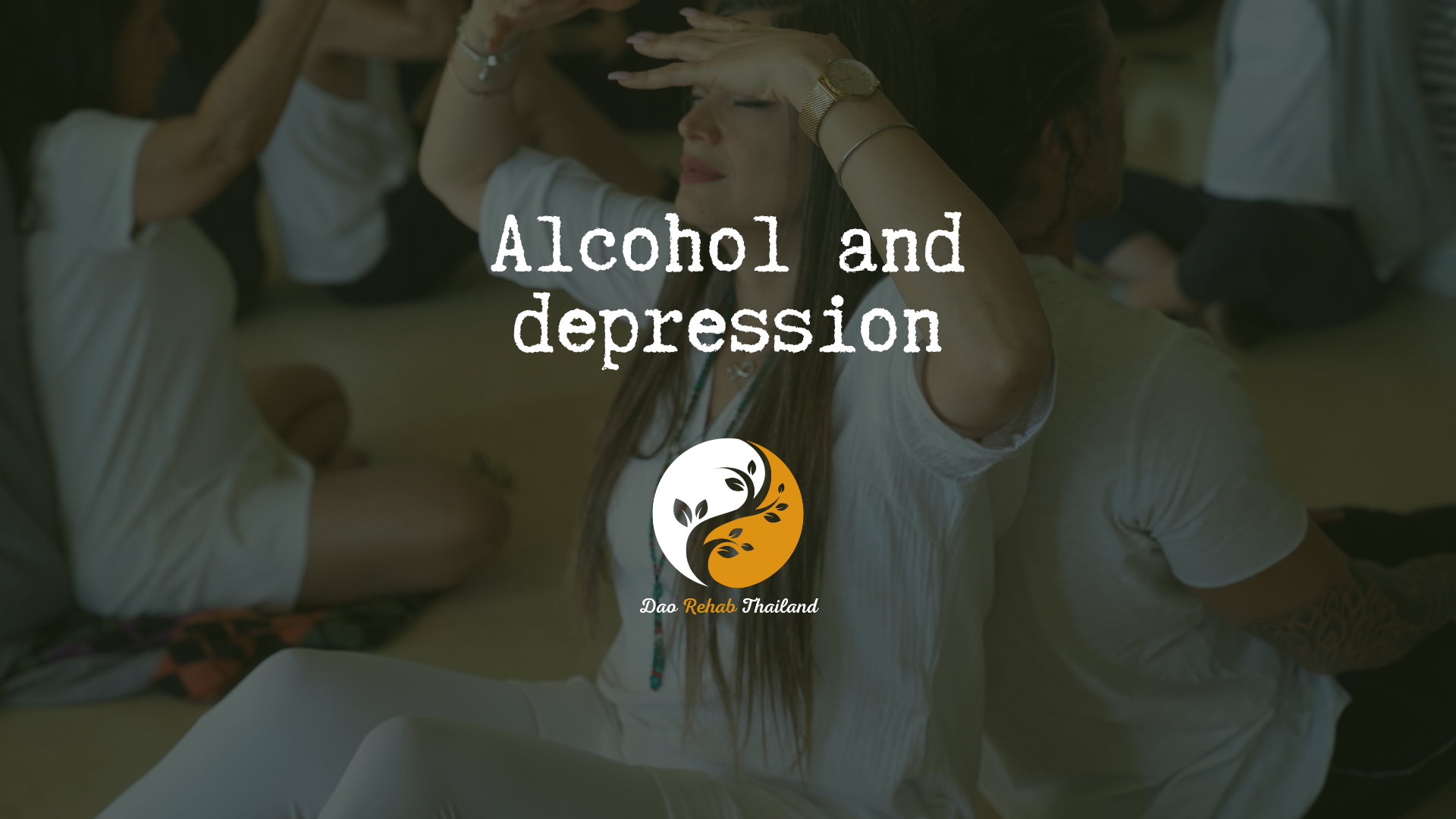
Captagon Addiction – Holistic Rehab in Thailand
Captagon Addiction
“Turning the impossible into possible”

"Detox from Captagon Addiction at a Luxury Holistic Center in Thailand and Israel"

Captagon Addiction
Captagon is a stimulant drug, also known by its chemical name, fenethylline. The drug was originally developed in the 1960s as a treatment for attention deficit disorder, narcolepsy, and depression. However, over the years, it has primarily become an illicit drug, especially popular in certain parts of the Middle East.
Composition and Mechanism of Action: Captagon is a derivative of amphetamine and theophylline, possessing stimulant properties that can cause euphoria, heightened alertness, and reduced fatigue. Its strong effects make it popular among users seeking energy and wakefulness.
Popularity in the Middle East: Captagon has gained significant popularity in recent years, particularly in Syria, Lebanon, and Saudi Arabia. The drug is sometimes used by soldiers and military personnel to enhance alertness and reduce fear and fatigue, as well as by young people at parties and in nightlife. It is considered a relatively “cheap” drug, making it widely available and prevalent.
"Holistic Center for Trauma, Addiction, and Mental Imbalance Treatment in Thailand"
“Come to the beginning of your journey to freedom from addiction to alcohol, drugs, and pills, and rediscover your life within the serene embrace of DaoTherapy Rehab in Thailand—where holistic healing meets empowering recovery.”
DaoTherapy Holistic Rehab
Key Elements of Captagon Detox:
Medical Supervision: Captagon detox must be conducted under medical supervision, as the body may experience withdrawal symptoms. These can include nausea, anxiety, muscle aches, and insomnia. A medical team will monitor and manage these symptoms to ensure the patient’s safety and comfort.
Holistic Therapies:
Holistic Therapies: Many detox programs incorporate holistic therapies such as mindfulness, yoga, and meditation to help individuals cope with stress and anxiety during the detox process. These therapies support the mind-body connection and contribute to overall recovery.
Tapering Process
Tapering Process: Captagon detox often involves a gradual tapering of the drug to reduce withdrawal severity. Doctors will slowly decrease the dosage over time to allow the body to adjust to lower levels of the substance.
Psychological Support:
Psychological Support: Like any addiction recovery process, detox from Captagon includes psychological support. This can involve counseling, therapy, or support groups to address the mental and emotional aspects of addiction.
Post-Detox Treatment:
Post-Detox Treatment: After completing detox, continuing treatment is crucial to prevent relapse. This often includes participation in ongoing therapy, group support, and the development of new coping strategies to maintain sobriety.
Background of Captagon Addiction:
Background of Captagon Addiction:
Captagon addiction is a growing phenomenon in various regions, particularly in the Middle East. Understanding the background of addiction to this drug requires examining several factors, including its history, physiological and psychological characteristics, and the social and economic influences that encourage its use.
1. History of the Drug:
Captagon (fenethylline) was originally developed in the 1960s as a medication for treating attention deficit disorders, narcolepsy, and depression. Initially, it was considered safe for medical use and was commonly prescribed by doctors. However, over time, it became evident that its stimulant effects led to abuse, resulting in it being banned in many countries.
2. Addictive Characteristics:
– Stimulant Effects: Captagon is known for causing euphoria, heightened alertness, and resistance to fatigue, attracting users looking to enhance their physical and mental performance.
– Rapid Dependence Development: The use of Captagon quickly leads to physical and psychological dependence. Users find they need higher doses to experience the same euphoria and alertness.
– Fearlessness: The drug induces an exaggerated sense of confidence and fearlessness, making it popular among fighters and individuals in high-risk situations.
3. Social and Economic Influences:
– Use in Wars and Conflicts: In some parts of the Middle East, Captagon is used by fighters to stay awake and boost courage and daring. Revenue from the drug’s sale often supports armed groups and fuels the spread of trafficking.
– High Availability and Low Cost: The drug is relatively inexpensive and is produced illegally in simple labs, making it accessible to a wide range of the population, including young people and those with limited financial means.
– Cultural Influence: In some areas, the use of Captagon has become normalized, particularly among youth seeking to participate in nightlife or improve academic and work performance.
4. Risk Factors for Addiction:
– Peer Pressure: Many young people are exposed to Captagon use through friends or social circles, increasing the risk of initial use.
– Accessibility: The ease of production and distribution makes Captagon prevalent, leading to widespread use.
– Mental Health Issues: People dealing with anxiety, depression, or prolonged stress may turn to Captagon as a means of coping with their difficulties.
Captagon addiction stems from a combination of historical, physiological, social, and economic factors. Its stimulant effects and rapid development of dependence pose significant public health risks, especially in regions where it is easily accessible. Raising awareness of the drug’s dangers and developing treatment and support programs can help prevent addiction and mitigate its consequences.

contact us
Contact us with your questions
We would love to speak with you! Feel free to reach out with any questions.

get in touch
Schedule a free consultation
Schedule a free consultation with our team and let’s make things happen!
Withdrawal Symptoms from Captagon:
Withdrawal Symptoms from Captagon:
The withdrawal process from Captagon can be particularly challenging due to its stimulant nature and strong effects on the body and mind. Withdrawal symptoms include both physical and psychological aspects and often require professional support.
1. Physical Symptoms:
– Extreme Fatigue: A feeling of exhaustion and general fatigue that appears after stopping use.
– Headaches: Severe headaches that can last for several days.
– Muscle and Joint Pain: A feeling of pain throughout the body.
– Excessive Sweating: Heavy sweating as part of the body’s detoxification process.
– Sleep Problems: Difficulty falling asleep or irregular sleep patterns, leading to further fatigue.
2. Psychological Symptoms:
– Anxiety: Increased anxiety that accompanies the withdrawal process.
– Depression: Deep depression that may include feelings of hopelessness and low mood.
– Irritability and Restlessness: An inability to relax and a general sense of restlessness.
– Strong Cravings: A strong urge to reuse the drug, complicating the withdrawal process.
3. Severe Psychological Symptoms:
– Hallucinations: In some cases, users may continue to experience hallucinations even after stopping use.
– Confusion and Concentration Issues: A feeling of confusion that makes concentration and daily functioning difficult.
Duration of Withdrawal:
Withdrawal symptoms can last from a few days to weeks, depending on the level of addiction and the duration of use. Symptoms like depression and anxiety may persist longer and require prolonged psychological treatment and support.
Managing the Withdrawal Process:
Captagon withdrawal often requires professional support in treatment facilities. Medical and psychological supervision is essential to help reduce physical symptoms and support mental coping. Group and family support can also contribute to the success of the process.
The withdrawal process from Captagon involves significant physical and psychological symptoms and requires professional support and medical supervision. With proper treatment and a supportive environment, withdrawal can be successfully managed, and life can be restored.
Psychological Symptoms in Captagon Withdrawal:
Psychological Symptoms in Captagon Withdrawal:
Withdrawal from Captagon involves not only physical symptoms but also significant psychological symptoms that can be complex and challenging to manage. These include emotional and mental responses that may appear at various stages of the withdrawal process.
1. Anxiety:
– Increased Anxiety: Individuals withdrawing from Captagon may experience anxiety attacks or a constant feeling of anxiety. This anxiety can stem from fear of the unknown, lifestyle changes, and the challenges associated with the withdrawal process itself.
– Panic Attacks: In some cases, anxiety may develop into sudden panic attacks, which include extreme fear, a rapid heartbeat, and excessive sweating.
2. Depression:
– Deep Depression: This is one of the most common psychological symptoms. Users may experience a significant drop in mood, feelings of hopelessness, and persistent sadness.
– Feelings of Guilt and Shame: During withdrawal, some individuals may feel guilt and shame over their drug use and its negative impact on their lives and the lives of those close to them.
– Suicidal Thoughts: In severe cases, depression may lead to suicidal thoughts or a sense of worthlessness.
3. Irritability and Restlessness:
– Inability to Relax: Individuals may feel restless, have trouble concentrating, and be unable to stay still.
– Increased Irritability: Overreacting emotionally and showing aggression may occur, especially in situations that require calmness or patience.
4. Intense Cravings for Reuse:
– Strong Urges: A strong craving to use the drug again may arise, and it can be difficult to resist this urge. This craving is due to the drug’s stimulating effect on the brain and the memory of positive feelings experienced during use.
– Mood Swings: Users may experience extreme mood swings, alternating between periods of depression and obsessive behavior.
5. Confusion and Difficulty Concentrating:
– Mental Confusion: Individuals may experience confusion and difficulty organizing clear thoughts.
– Impaired Concentration: Difficulty concentrating makes it challenging for users to return to normal routines and complete simple daily tasks.
6. Feeling of Emptiness:
– Lack of Purpose: During withdrawal, individuals may feel empty or lose interest in activities they once enjoyed.
– Decreased Motivation: A lack of desire to perform tasks or participate in social activities.
The psychological symptoms during Captagon withdrawal are significant and highly challenging. They require professional attention and continuous support to help individuals cope with difficult emotions, regain a sense of control over their lives, and prevent relapse.
Production and Distribution of Captagon:
Production and Distribution of Captagon:
1. Production:
Captagon is primarily produced in illegal laboratories in the Middle East, with major hubs in Syria and Lebanon. In recent years, Syria has become a central hub for the production and distribution of Captagon due to the political situation and ongoing conflict in the country. These illegal laboratories often operate under the supervision of armed groups or criminal organizations that profit from the drug trade to fund their activities.
2. Distribution:
– Middle East: Captagon is mainly distributed in Arab countries, such as Saudi Arabia, the Gulf states, and Lebanon, where demand is high. The drug is used at parties, by young people, and sometimes by fighters to improve alertness and reduce fatigue.
– Europe and North Africa: Captagon is also distributed to countries in Europe and North Africa, which sometimes serve as transit points for smuggling routes.
– Global Market: Although the main distribution focus is the Middle East, there are reports of attempts to smuggle Captagon into other parts of the world through international trafficking networks.
3. Smuggling Routes:
Captagon is smuggled through land, sea, and air routes. The drug is often concealed in legitimate shipments and transported through countries with lax border controls or connections to local criminal groups.
4. Economic Impact:
The Captagon trade generates millions of dollars annually and serves as a significant source of income for armed groups and criminal organizations. Profits from the trade help finance internal conflicts and terrorist activities in the region.
Captagon is primarily produced in Syria and Lebanon in illegal laboratories and is mainly distributed to the Middle East, but also to Europe and North Africa. The distribution is carried out through complex smuggling routes, and the revenue generated from its sale is a major source of income for armed groups and criminal organizations.
Psychological Support:
Psychological Support: Like any addiction recovery process, detox from Subutex includes psychological support. This can involve counseling, therapy, or support groups to address the mental and emotional aspects of addiction.








